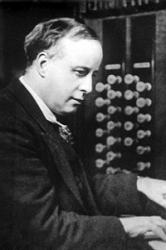Planning worship?
Check out our sister site, ZeteoSearch.org,
for 20+ additional resources related to your search.
- |
User Links
Search Results
Behold the eternal King and Priest
Author: unknown Appears in 2 hymnals Topics: God's Church Holy Communion Scripture: Genesis 14:18 Used With Tune: MELCOMBE
Behold the eternal King and Priest
Behold the eternal King and Priest
Author: unknown Hymnal: Hymns for Today's Church (2nd ed.) #397a (1987) Topics: God's Church Holy Communion Scripture: Genesis 14:18 Languages: English Tune Title: RUSHFORD
Behold the eternal King and Priest
Behold the eternal King and Priest
Author: unknown Hymnal: Hymns for Today's Church (2nd ed.) #397b (1987) Topics: God's Church Holy Communion Scripture: Genesis 14:18 Languages: English Tune Title: MELCOMBE
Behold the eternal King and Priest
Anonymous
Person Name: unknown Author of "Behold the eternal King and Priest" in Hymns for Today's Church (2nd ed.) In some hymnals, the editors noted that a hymn's author is unknown to them, and so this artificial "person" entry is used to reflect that fact. Obviously, the hymns attributed to "Author Unknown" "Unknown" or "Anonymous" could have been written by many people over a span of many centuries.
Anonymous
Samuel Webbe

1740 - 1816 Person Name: S. Webbe the elder (1740-1816) Composer of "MELCOMBE" in Hymns for Today's Church (2nd ed.) Samuel Webbe (the elder; b. London, England, 1740; d. London, 1816) Webbe's father died soon after Samuel was born without providing financial security for the family. Thus Webbe received little education and was apprenticed to a cabinetmaker at the age of eleven. However, he was determined to study and taught himself Latin, Greek, Hebrew, French, German, and Italian while working on his apprenticeship. He also worked as a music copyist and received musical training from Carl Barbant, organist at the Bavarian Embassy. Restricted at this time in England, Roman Catholic worship was freely permitted in the foreign embassies. Because Webbe was Roman Catholic, he became organist at the Portuguese Chapel and later at the Sardinian and Spanish chapels in their respective embassies. He wrote much music for Roman Catholic services and composed hymn tunes, motets, and madrigals. Webbe is considered an outstanding composer of glees and catches, as is evident in his nine published collections of these smaller choral works. He also published A Collection of Sacred Music (c. 1790), A Collection of Masses for Small Choirs (1792), and, with his son Samuel (the younger), Antiphons in Six Books of Anthems (1818).
Bert Polman
Samuel Webbe
Henry G. Ley

1887 - 1962 Person Name: H. G. Ley (1887-1962) Composer of "RUSHFORD" in Hymns for Today's Church (2nd ed.) Born: December 30, 1887, Chagford, Devonshire, England.
Died: August 24, 1962, near Ottery, Devonshire, England.
Ley trained as a chorister at St. George’s Chapel, Windsor, as a music scholar at Uppingham, the Royal College of Music, and as an organ scholar at Keble College, Oxford. He was Precentor of Radley College; organist at Christ Church Cathedral, Oxford (1909-26); Choragus of the University, Oxford; professor of the organ at the Royal College of Music (1919); and organist at Eton College.
Sources:
Frost, p. 680
West, p. 87
http://www.hymntime.com/tch/bio/l/e/y/ley_hg.htm
Henry G. Ley


 My Starred Hymns
My Starred Hymns


